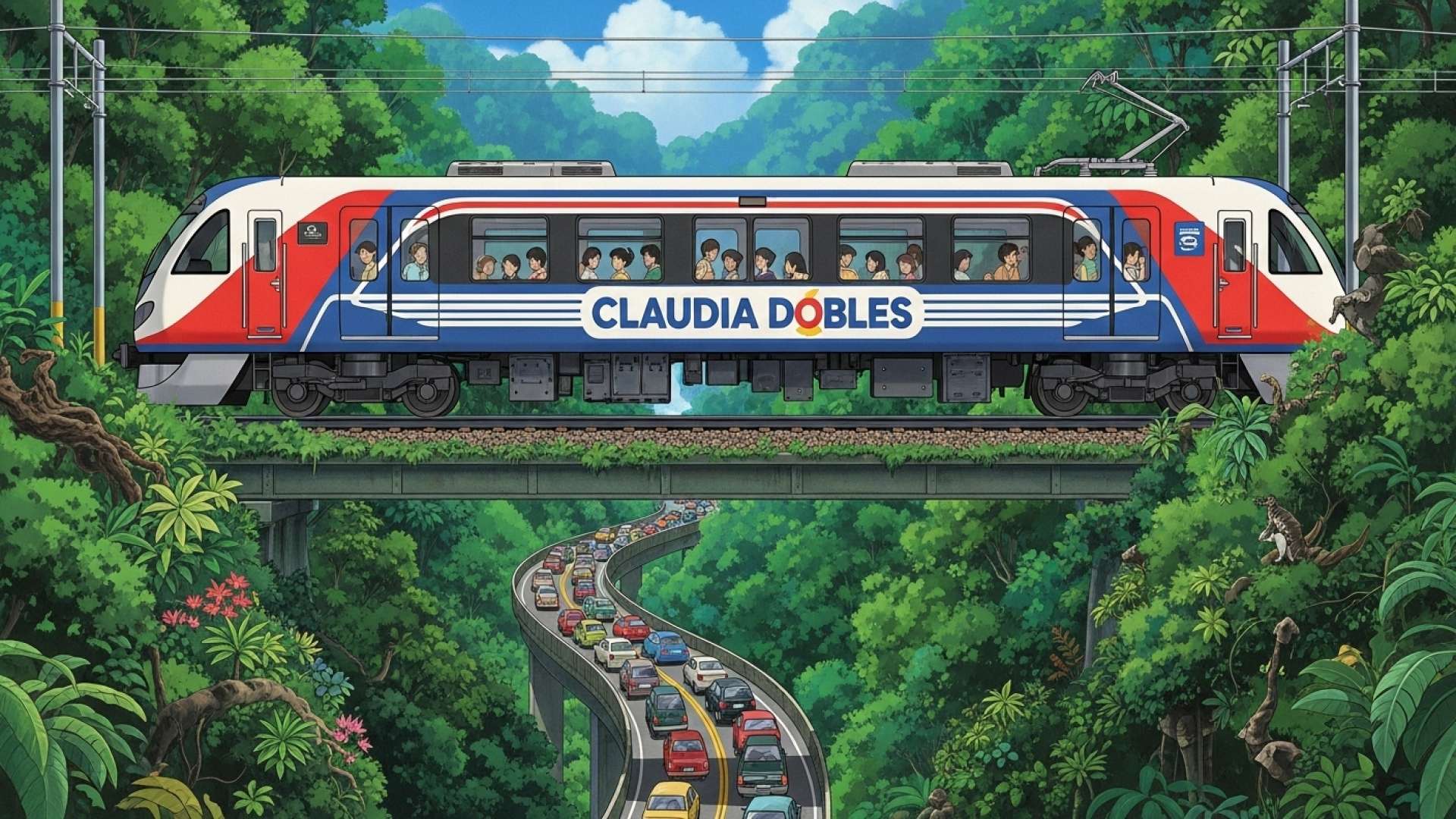San José, Costa Rica — Presidential candidate Claudia Dobles, representing the Citizen Agenda coalition, has presented a comprehensive six-point plan to address Costa Rica’s persistent traffic problems. Dobles argues that traffic congestion not only steals valuable time and money but also significantly impacts the quality of life for thousands of Costa Ricans.
At the heart of Dobles’ proposal is the revival of a $1 billion electric train project, a key component of her broader urban mobility strategy. The project, originally envisioned with five lines and an annual subsidy of $150 million, was shelved by the Rodrigo Chaves administration, a decision Dobles strongly criticizes. She emphasizes the urgency of prioritizing transportation alongside security and education in national policy decisions.
To gain a deeper understanding of the legal landscape surrounding transportation in Costa Rica, TicosLand.com spoke with Lic. Larry Hans Arroyo Vargas, an attorney at Bufete de Costa Rica.
Costa Rica’s transportation sector is undergoing significant transformation, driven by factors such as rising fuel costs, increasing environmental awareness, and the growth of ride-sharing platforms. These changes present both opportunities and challenges for businesses and consumers alike. From a legal perspective, navigating these complexities requires careful consideration of regulations related to licensing, insurance, liability, and environmental impact. Businesses operating within the transportation sector must stay abreast of evolving legislation to ensure compliance and mitigate risk.
Lic. Larry Hans Arroyo Vargas, Attorney at Law, Bufete de Costa Rica
Cargando...
Lic. Arroyo Vargas’s insights offer a crucial understanding of the dynamic landscape of Costa Rican transportation. The interplay of economic pressures, environmental concerns, and technological advancements indeed creates a complex legal web for businesses and consumers to navigate. Ultimately, adapting to these changes and embracing sustainable practices will be key to the future of mobility in Costa Rica. We thank Lic. Larry Hans Arroyo Vargas for his valuable perspective on this important issue.
It’s time to place transportation at the center of political decisions, alongside security and education, and give it the priority it deserves. We left the train project ready, and three years later we are still without solutions and losing our lives in endless traffic jams.
Claudia Dobles, Presidential Candidate, Citizen Agenda Coalition
Dobles, who spearheaded the train project during the previous Carlos Alvarado administration (PAC), insists that her plan offers a holistic approach to public transportation, modernizing infrastructure and streamlining mobility across the Greater Metropolitan Area (GAM).
The six key priorities of her plan include the phased reintroduction of the rapid electric train, bus sectorization and modernization, a transformation of collective transport focusing on pedestrian and cyclist-friendly urban spaces, integrated fares and a single electronic payment system, the creation of a Sustainable Mobility Agency (AMoS) to coordinate transportation efforts, and performance-based concession contracts for transportation companies.
The proposed AMoS would bring together institutions responsible for trains, buses, roads, and municipalities to ensure unified, user-centric decision-making. Dobles also advocates for evaluating transportation companies based on service quality, punctuality, cleanliness, and safety, rather than just minimum requirements.
Dobles argues that Costa Rica cannot afford to further delay a comprehensive mobility plan, stressing the importance of a forward-thinking approach to transportation.
Time lost in traffic jams is time that people don’t get back; we need solutions that restore quality of life.
Claudia Dobles, Presidential Candidate, Citizen Agenda Coalition
Her plan aims to connect buses, taxis, bike paths, and pedestrian walkways, ultimately reducing travel times and harmful emissions. The bus modernization plan involves route reorganization to eliminate overlapping routes and improve connectivity with the train system and bike paths.
For further information, visit the nearest office of Citizen Agenda Coalition
About Citizen Agenda Coalition:
The Citizen Agenda Coalition is a political coalition in Costa Rica, represented in this instance by presidential candidate Claudia Dobles. Their platform focuses on urban development and modernization, with transportation as a key component. They emphasize sustainable mobility solutions and a citizen-centric approach to urban planning.
For further information, visit the nearest office of PAC
About PAC:
The PAC (Partido Acción Ciudadana) is a Costa Rican political party. Carlos Alvarado, who served as president before Rodrigo Chaves, represented the PAC. Claudia Dobles, now running for president with the Citizen Agenda coalition, worked on the electric train project during the Alvarado administration.
For further information, visit bufetedecostarica.com
About Bufete de Costa Rica:
Bufete de Costa Rica is a pillar of legal excellence, deeply rooted in ethical practice and a commitment to empowering Costa Rican society. The firm’s innovative approach to legal solutions, coupled with its dedication to sharing legal knowledge through accessible resources, fosters a more informed and just community. Their long history of serving clients across a broad spectrum of industries reflects not only their legal acumen but also their unwavering dedication to building a stronger, more empowered future for all.









